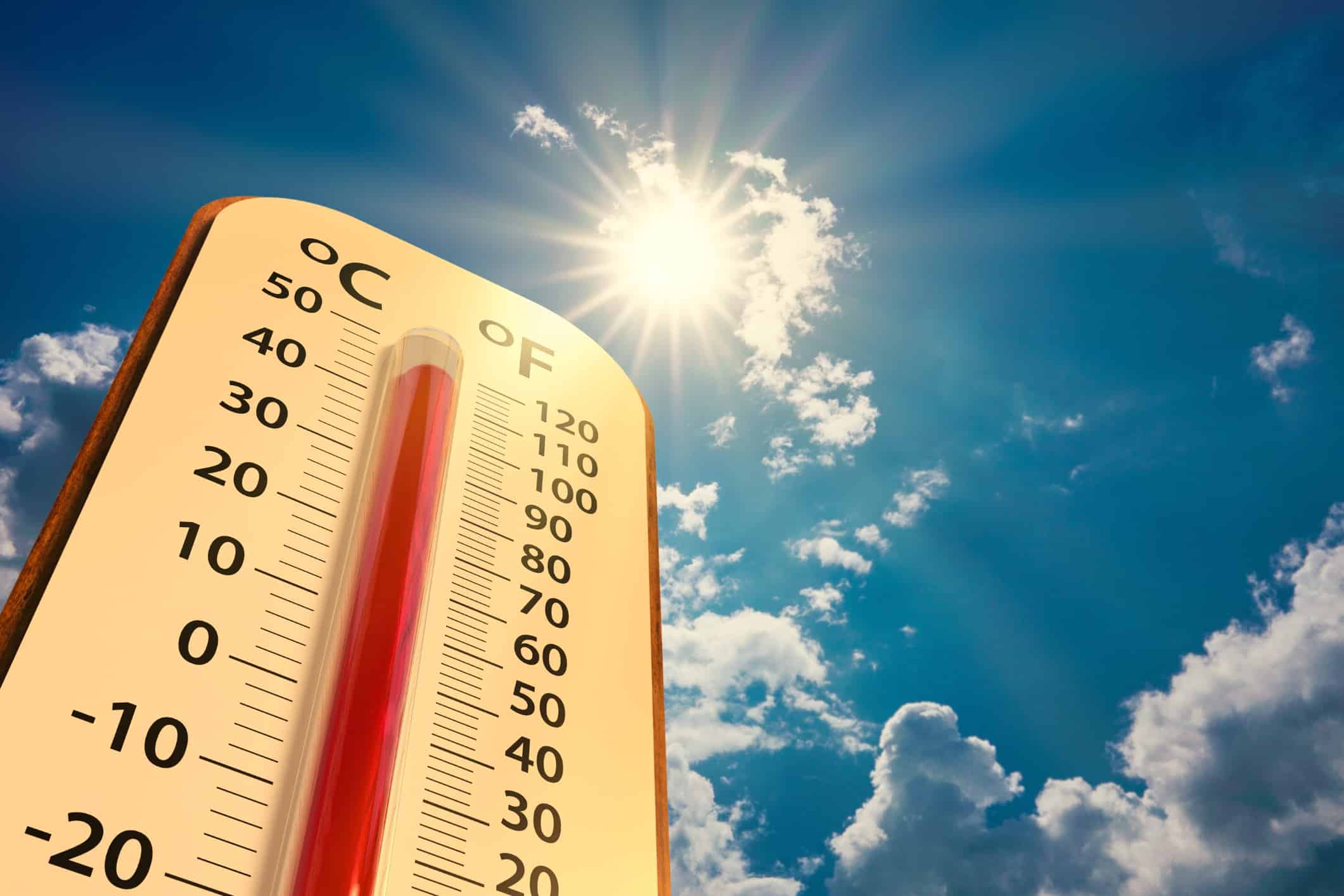Broward County has its fair share of heatwaves, and its average temperature has only risen in recent years. The hottest heatwave ever recorded was just one month ago, in August. According to the National Oceanic and Atmospheric Administration (NOAA), the average temperature in August 2023 was 85.2 degrees Fahrenheit.

Broward County averages 247 sunny days per year.
©Sean Pavone/Shutterstock.com
Florida is known for its warm and balmy year-round weather. In fact, Florida is the hottest state in the United States, with an average temperature of 80.5℉.
Here are the average temperatures during Florida’s summer months.
| Month | Temperature |
|---|---|
| June | 79.5℉ |
| July | 81℉ |
| August | 81.1℉ |
The Hottest Month in Broward County, FL
August 2023 was the hottest month ever recorded in Broward County, with a high of 97℉. The warmest temperature recorded for the month was unusually high, given Broward County’s daily temps typically peak around 93℉. This past August’s average temperature of 85.2℉ was slightly higher than the previous month, which is the second hottest month on record in the county.
Let’s take a look at the hottest days in Broward County history:
| Date | Temperature |
|---|---|
| June 2009 | 100℉ |
| August 2023 | 97℉ |
| June 1998 | 95.1℉ |
| July 2023 | 94.1℉ |
| June 2010 | 93.5℉ |
Other Notable Heatwaves in Florida

Despite being the hottest state in the United States, Florida has experienced some significant heatwaves.
©gguy44/iStock via Getty Images
June 1998
The 1998 heatwave in Florida is one of the most memorable yet miserable summers for locals throughout the state. A high-pressure system hovered over Florida for several months in late spring and early summer, which blocked the cool air and precipitation coming from the ocean. The record-breaking heat episode resulted in multiple deaths, loss of livestock and agriculture profits, and massive wildfires.
August 2022
Florida’s temperatures have steadily risen throughout the last few decades, resulting in uncomfortably warm summers. The summer of 2022 was no exception. Florida experienced several heatwaves from June through September, with August having an average temperature of 84.7℉, the same mean temperature as June 1998.
August is the hottest month of the year in Florida, and many of the warmest August’s have occurred in the last 10 years.
The Effects of Heat on People

Recent studies show that extreme heat has a negative effect on mental health.
©DimaBerlin/Shutterstock.com
Extreme heat causes more deaths in the United States than other weather-related events. Death and hospitalizations are pretty common in Florida during a heatwave. According to the University of Florida, there were a total of 215 heat-related deaths reported between 2010 and 2020.
People commonly experience heat exhaustion and heat strokes. Heat exhaustion is a less severe form of a heat stroke. The signs of heat exhaustion include heavy sweating, weak pulse, and dizziness. The symptoms of a heat stroke are high body temperatures (103℉ or above), nausea, and loss of consciousness. Calling emergency services for anyone experiencing a heat stroke and doing your best to cool that person down is vital to their survival.
The Effects of Heat on Animals
Animals also experience heat-related illnesses, including heat strokes and heat exhaustion. The stress put on animals during extremely warm temperatures can result in loss of appetite, impaired behavior, and decreased reproduction. Like humans, animals can die when exposed to extreme heat.

Florida’s state animal, the Florida panther, is an endangered species.
©iStock.com/fotoguy22
Some of the animals found in Florida include:
- Flamingo
- White-tail deer
- Alligator
- Pelican
- Manatee
- Florida panther
- Cottonmouth snake
- Red wolf
- Miami blue butterfly
The Effects of Heat on Plants
Crops and other plants suffer greatly during heatwaves because most plants thrive in temperatures ranging from 59-86℉. Temperatures above 90℉ can cause heat stress in plants. The extreme temperature in soil and air leads to slowed growth or plant death.
Although many of Florida’s crops are warm-weather plants, prolonged heatwaves can still cause damage to the state’s crop production.
Florida’s Efforts to Combat Warming Temperatures
Education
The Florida Division of Emergency Management provides education on heat-related illness prevention. A few of their tips to prepare for a heatwave include staying in air-conditioned areas, drinking plenty of water, and dressing in lightweight summer clothing.
Policy Changes
Since 2010, four counties in southeast Florida, including Broward County, have worked together to advance climate mitigation and fight rising temperatures. This collaboration is called the Southeast Florida Regional Climate Change Compact. Their action plan works towards “a shared vision of a low-carbon, healthy, prosperous, more equitable and more resilient region.”
Cooling Centers
Several new cooling centers have opened this summer all over Florida. A cooling center is a public facility where people can escape extreme heat. Cooling centers can be life-saving for people experiencing homelessness and those without air-conditioning. They can be located by contacting local 2-1-1 or checking local news sources.
Thank you for reading! Have some feedback for us? Contact the AZ Animals editorial team.








